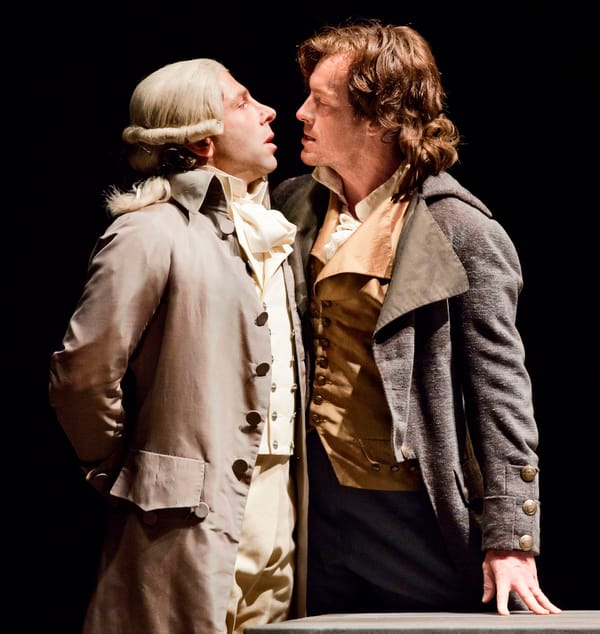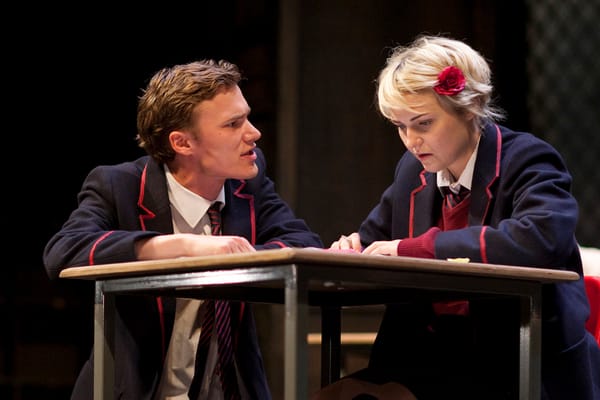The Descent into Dotage
Amusing, startling, moving: Krapp's Last Tape at the Duchess Theatre

One actor, no more than a few minutes of monologue and the rest tape recordings. Combined with little action and the ponderous nature of Samuel Beckett’s plays, Krapp’s Last Tape doesn’t necessarily promise the most easy going of theatre experiences. Michael Gambon (no introductions necessary) plays the decaying and decrepit Krapp – a role previously played by Harold Pinter – in a version directed by Michael Colgan at the Duchess Theatre.
Conceived by Beckett after listening to the voice of actor Patrick Magee reading extracts from the novel Molloy on the radio, the one act play was originally entitled the Molloy Monologue and written specifically for Magee’s voice. A year later, in 1958, Krapp’s Last Tape premiered at the Royal Court starring Magee himself as Krapp.
The descent into old age, the slowing and loss of one’s wits and the despair that comes with it are issues that Gambon conveys expertly
Each year Krapp celebrates his birthday by unearthing dust-covered tin boxes, filled with tape recordings of reminisces of birthdays gone by, and listening to random passages from this back-catalogue. On his 69th birthday he chooses an annal from thirty years before and listens to memories of Bianca in Kedar Street, a little white dog and a girl in a punt. The old Krapp laughs at his 39 year old self’s voice, quarries and aspirations but also mourns for his lost youth.
The descent into old age, the slowing and loss of one’s wits and the despair that comes with it are issues that Gambon conveys expertly. Beckett may have a knack for exploring the bleak and unwell in his works, but he does so whilst adding an element of black humour. This is true of Krapp’s Last Tape, as we see Krapp finding amusement in the word "spooooool", as well as devouring bananas, flinging away their skins and finding puerile amusement in their shape. As per Beckett’s original stage directions, Colgan has ensured that Krapp is rendered pitiable rather than clownish (as he is portrayed in other productions). With his slow and jerky gait, tattered appearance and sporadic looks of child-like confusion, Gambon carries this off perfectly, while the soothing younger voice emanating from the old-fashioned tape player evokes all the sensuality and emotion of the younger Krapp’s experiences.
Krapp’s Last Tape amuses, startles, moves and saddens. Gambon’s talent, James McConnell’s simple yet beautiful lighting and Beckett’s slow, thoughtful writing blow away any prior misgivings and make for one of the most relaxing evenings at the theatre one could wish for.
Until 20 November.








